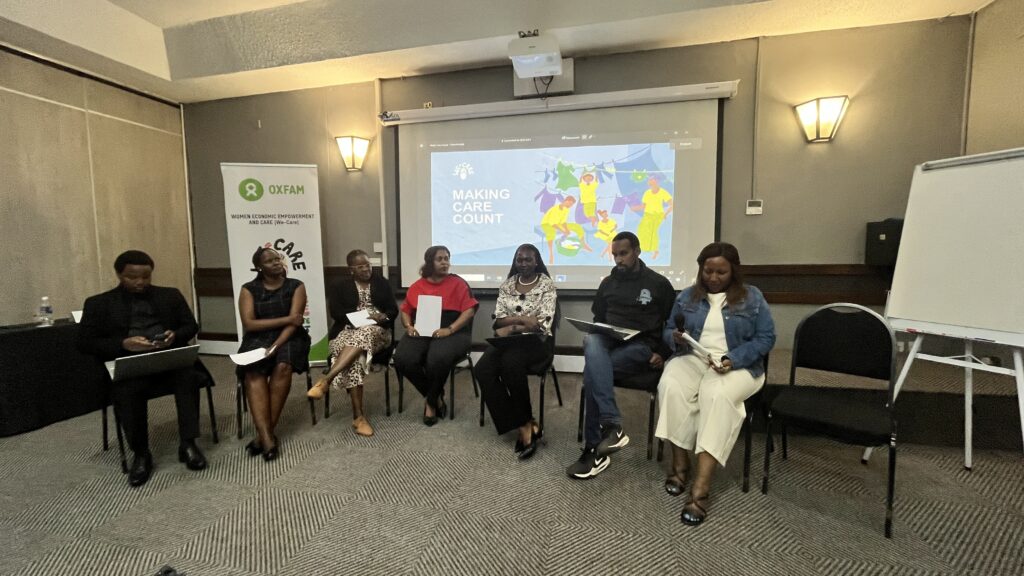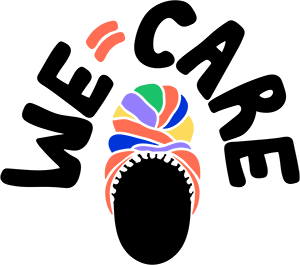Is decolonial learning possible in a multi-country program?
In the realm of international development, a quiet revolution is underway, one that challenges traditional power dynamics and amplify the voices of those most affected by the issues we seek to address. This is the story of the Women’s Economic Empowerment and Care (WE-Care) Program—a journey of empowerment, growth, and decolonial learning across multiple countries. The WE-Care Program is implemented in four countries (i.e., Uganda, Kenya, Zimbabwe, Ethiopia), with a regional and global presence. The seven implementing partners of the WE-Care Program are: Uganda Women’s Network, Association of Women in Agriculture-Kenya, Youth Alive! Kenya, Padare, Bekezela, Network of Ethiopian Women Association, and African Leadership Foundation in Nigeria
For over a decade, WE-Care has been working to recognize, reduce, and redistribute unpaid care and domestic work (UCDW) across local, regional, and national spheres in multiple countries. From the bustling streets of Kampala to the rural villages of Kenya, it has been a beacon of hope for countless women and girls around the world.
But what sets WE-Care apart is its commitment to decolonial learning—an approach that prioritizes the voices and perspectives of partner-organizations and communities. In a multi-country program like ours, this approach is crucial. It allows us to tap into local knowledge and expertise, ensuring that our program is relevant and effective in diverse contexts.
WE-Care promotes a culture of peer learning and collaboration among its seven partners through different learning events. Each event is unique and inspired by the partners themselves. For example, the 2023 Addis Ababa Learning Event focused on successful partner approaches and models that could potentially be replicated. The 2024 Kampala Learning Event, on the other hand, was all about how partners could use the African Union as a platform to advance their influencing on care work. In Kampala, partners expressed a need for more cross-country learning. This led to a learning exchange where the Kenyan team traveled to Zimbabwe to learn about their men engage program, while the Zimbabwean team went to Kenya to learn about policy formulation and development on gender equality.
This year, the WE-Care Learning Event in Harare focused on how partners are benefiting from institutional support in three key areas: communications, monitoring and evaluation (M&E), and finance. Partners shared their experiences and learnings, noting that the communications support has not only increased their visibility but also provided them with valuable, real-time tools to improve how they communicate. For example, Susan Achen of UWONET highlighted the power of storytelling in effectively sharing their work and impact. Similarly, Judy Matu of AWAK shared how enhanced communication and branding strategies have improved their visibility, making their organization more appealing to donors. In the area of M&E, partners explained that the support has enabled them to better document, share, and reflect on their experiences and learnings.

Listening to these stories, I realized that decolonial learning is more than just shifting power dynamics. It’s about building a more equitable and effective way to develop and implement programs. By prioritizing the voices of our partners and empowering them to lead the decision-making process, we can create initiatives that are more impactful, sustainable, and just.
The benefits of decolonial learning in a multi-country program are numerous. It promotes contextual relevance, allowing us to design program activities that are tailored to the specific needs and contexts of different countries and regions. It fosters peer learning and knowledge exchange, enabling partners to share their experiences and learn from one another. Finally, it empowers communities, recognizing their agency and capacity to drive change.
As we are moving forward, I am excited to see how decolonial learning will continue to shape the WE-Care Program and inspire others to follow in its footsteps. By embracing this approach , we can build a more just and equitable world, one that values the dignity, agency, and expertise of every individual and organization involved.
Written by Charity Namara, WE-Care Program Manager. Photo shows the panel members from WE-Care partners during a conversation on institutional capacity strengthening.
